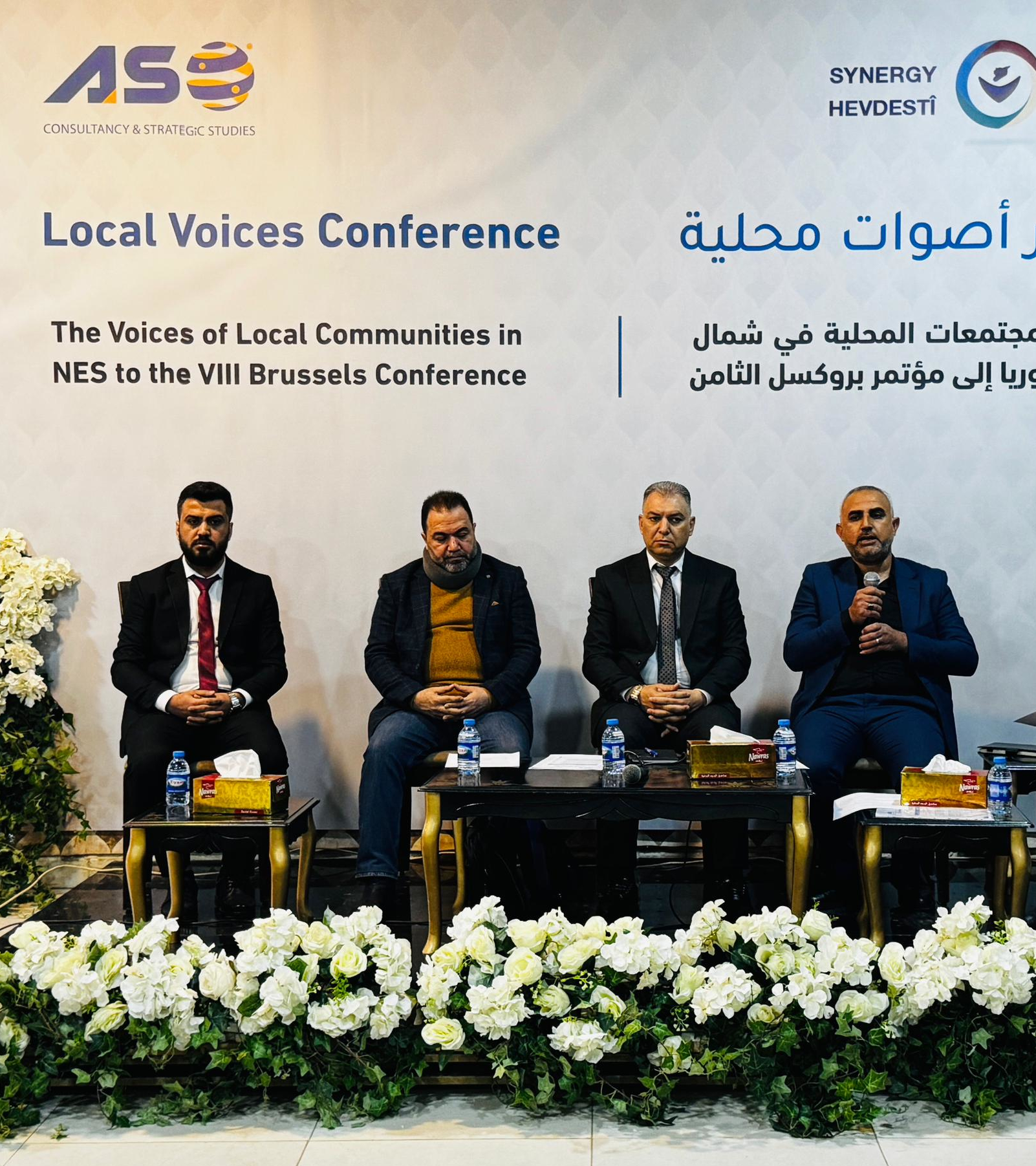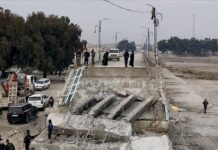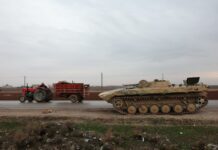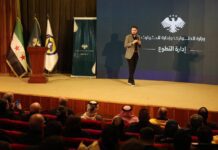
The Syrian Network for Human Rights (SNHR), in partnership with Baytna, an NGO dedicated to strengthening Syrian civil society, convened a crucial sideline meeting on Monday, April 29, 2024, during the Brussels VIII Conference in the Belgian capital. Titled “The Devastating Effects of Humanitarian Aid Cuts in Syria: Challenges and Strategies to Mitigate the Disaster”, the event drew attention to the dire humanitarian situation unfolding in Syria due to recent aid cuts.
Live-streamed on SNHR’s social media channel, the meeting featured esteemed speakers, including Mazen Kewara M.D., the Middle East Regional Director at the Syrian American Medical Society (SAMS); Riyad Al Najem, Executive Director of Child Guardian; Atef Nanoua, CEO of the Mulham Team; Razan Brghol, Head of Programs at Baytna; and Fadel Abdulghany, SNHR’s Executive Director. The discussion was moderated by Jelnar Ahmad, Research and Monitoring and Evaluation Manager at IMPACT.
The focus of the discourse was on the recent cuts announced by the World Food Program (WFP) at the end of last year, slashing aid across Syria and reducing funding to numerous Syrian organizations. Abdulghany, SNHR’s Executive Director, highlighted the far-reaching impact, emphasizing, “As if that was not enough, the Syrian regime systematically steals as much as 90 percent of all humanitarian relief aid.” These cuts, affecting both relief and human rights groups, intensify the struggle amid an ongoing conflict that continues to claim victims.
“With the absence of a real, functional, credible, and transparent government countrywide, civil society organizations play a role that parallels that of the government in the case of Syria,” Abdulghany stressed. He mentioned the patchwork of areas of control and a kaleidoscope of “Military groups [that are] are in control, and those groups employ an unelected political front, which has lost the confidence of donor states and international organizations. As such, civil society organizations have been compelled to play a much larger role.”
According to Abdulghany, another issue is the tampering by Assad allies like Russia which has used its veto powers in an abusive and unlawful way to block the delivery of cross-border humanitarian assistance on six different occasions, even though delivering cross-border humanitarian assistance does not require permission from the UN Security Council to begin with.
Kewara ME SAMS Director, highlighted the dire consequences of dwindling support for Syrian organizations. “Reduced funding will limit our ability to provide aid to Syrians who are in exceptionally dire need,” Dr. Kewara warned. “This will also impede medical organizations from offering adequate treatment and healthcare services.”
Mulham Team CEO, Atef Nanoua spoke on the prolonged suffering of internally displaced persons (IDPs) in northern Syrian camps, many of whom have endured over five years of displacement. “Reducing aid adversely affects our ability to provide support and diminishes the level of assistance available,” Nanoua lamented.
“Reducing scarce funding will have a particularly negative impact on [education] sectors,” cautioned Child Guardian’s Al Najem, stressing the impact on education and child protection sectors, which are already among the least-supported in the region. Baytna’s Razan Brghol, described the humanitarian crisis as “devastating”, emphasizing the reliance of millions of Syrians on humanitarian assistance for survival. “This latest reduction in humanitarian aid is a severe blow, especially for vulnerable groups such as children, women, and persons with special needs,” Brghol informed the attendees. “Activities concerned with raising awareness and defending human rights, particularly for children’s and women’s rights, are under threat in light of these cutbacks.”
The sideline meeting provided a crucial platform for stakeholders to address the urgent humanitarian concerns in Syria and propose strategies to mitigate the unfolding disaster. As the international community grapples with the gravity of the situation, concerted efforts are imperative to alleviate the suffering of Syria’s most vulnerable populations amidst unprecedented challenges.








